Keynote Speakers
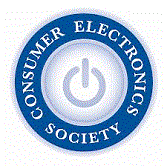
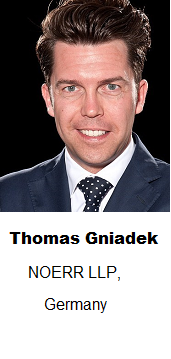 |
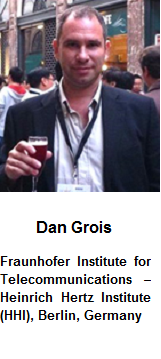 |
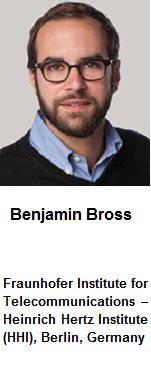 |
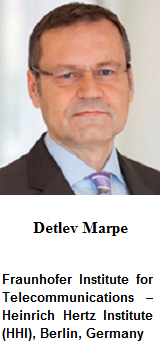 |
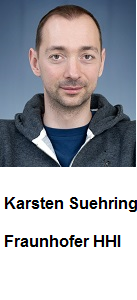 |
Tutorials
Karlheinz Brandenburg
Fraunhofer/TU Ilmenau, DE“Audio and Acoustics Signal Processing: the Quest for High Fidelity Continues"
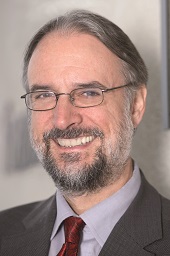
Abstract
- simple solutions like matrix multichannel systems,- audio coding which changed the world of music distribution and listening habits
- active noise control
- active modification of room acoustics
- search and recommendation technologies to find your favourite music
- ...and many more
So are there any problems left to be solved ?
Two main research areas are still:
- Music Information Retrieval (MIR), helping us to to find music or even learn playing instruments
- Immersive technologies to really get the best illusion into movie theaters and eventually our homes
For all these systems we use our knowledge about hearing, how the ear and the brain work together to form the way how we listen to music. However, our knowledge about hearing, about psychoacoustics is still far from complete. In fact, just in the last few years we have learned a lot about what we dont know. The talk will touch on a number of the subjects above, explain some current work and its applications and finally talk about open research questions regarding psychoacoustics and the evaluation of audio quality.
Biography
Dr. Karlheinz Brandenburg has been a driving force behind some of today's most innovative digital audio technology, notably the MP3 and MPEG audio standards. He is acclaimed for seminal work in digital audio coding and perceptual measurement techniques, Wave Field Synthesis (WFS) and psycho-acoustics. Karlheinz Brandenburg is a full professor at the Institute for Media Technology at Technische Universität Ilmenau. At the same time he is the director of the Fraunhofer Institute for Digital Media Technology IDMT in Ilmenau.Dan Grois, Benjamin Bross, Detlev Marpe and Karsten Suehring
Fraunhofer Institute for Telecommunications . Heinrich Hertz Institute (HHI), Berlin, Germany"HEVC/H.265 Video Coding Standard including the Range Extensions, Scalable Extensions, and Multiview Extensions"
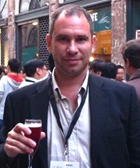
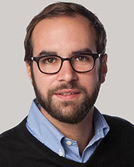
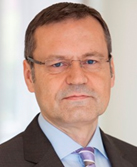
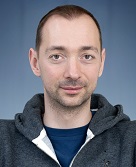
Abstract
The High-Efficiency Video Coding (HEVC) standard is the latest standard developed by a Joint Collaborative Team on Video Coding (JCT-VC), the first version of which was established by both ITU-T Video Coding Experts Group (VCEG) and the ISO/IEC Moving Pictures Expert Group (MPEG) in January, 2013. When compared to its predecessor, i.e. the H.264/MPEG-AVC standard, H.265/MPEG-HEVC allowed achieving dramatic bit-rate savings due to employing state-of-the-art technological achievements. H.265/MPEG-HEVC was also especially designed for the High Definition (HD) as well as to the Ultra-High Definition (UHD) video content, which often refers to both 3840x2160 (4K) or 7680x4320 (8K) resolutions in terms of luma samples, the demand for which is expected to dramatically increase in the near future.
This tutorial will be focused on the second edition of the HEVC video coding standard, which was officially issued in October 2014, further including the combined extensions: RExt . the range extensions, SHVC . the scalable extension, and MV-HEVC . the multiview extension. In the first part of the tutorial, the speakers will provide a brief overview of the H.264/MPEG-AVC standard, followed by a detailed overview of the HEVC coding tools, which led to such significant improvements in coding efficiency compared to H.264/MPEG-AVC (including the quadtree coding structure, intra/inter-prediction, in-loop filtering, high-level syntax, transform coding, entropy coding, parallel coding tools, etc.), further making a special emphasis on the compression efficiency and performance.
In the second part of the tutorial, the speakers will make a detailed overview on the HEVC extensions: particularly, the range extensions (including extended bit depth, chroma format support, etc.), the scalable extension (including the up-sampling process, inter-layer prediction process, etc.), and the multiview extension (including the inter-view prediction, etc.). Finally, this talk will be concluded by a discussion regarding further research directions and challenges.
Biographies
Dan Grois received Ph.D. degree at the Communication Systems Engineering Department, Ben-Gurion University of the Negev (BGU), Israel, 2011. From 2011 to 2013, Dan was a Senior Researcher at the Communication Systems Engineering Department, BGU. Starting from the middle of 2013, Dan is a Post-Doctoral Senior Researcher at the Video Coding & Analytics Department of the Fraunhofer Institute for Telecommunications - Heinrich Hertz Institute (HHI), Germany. Dan is an author and co-author of about 40 publications in the area of image/video coding and data processing, which have been presented at top-tier international conferences, and published in various scientific journals, books, etc. In addition, Dan is a referee of top-tier conferences and international journals, such as the IEEE Trans. in Image Processing, IEEE Trans. on Multimedia, IEEE Trans. on Signal Processing, Journal of Visual Comm. and Image Repres., Elsevier, IEEE Sensors, SPIE Optical Engineering, etc. In 2013, Dan also served as a Guest Editor of the SPIE Optical Engineering journal.
During his academic carrier, Dan was granted various fellowships, including Kreitman Fellowships and the ERCIM Alain Bensoussan Fellowship, which was provided by the FP7 Marie Curie Actions COFUND Programme. In addition, Dan currently is a Fellow of the PROVISION ITN project, which is a part of the European Union.s Marie Sk.odowska-Curie Actions of the European Commission.
Dan is a Senior Member of the IEEE, and a Member of the ACM and SMPTE societies. Dan's research interests include image and video coding and processing, video coding standards, particularly H.265 | MPEG-H High-Efficiency Video Coding (HEVC), region-of-interest scalability, computational complexity and bit-rate control, network communication and protocols, and future multimedia applications/systems.
Benjamin Bross is a Project Manager at the Video Coding & Analytics Department of the Fraunhofer Institute for Telecommunications - Heinrich Hertz Institute, Berlin and a part-time lecturer at the HTW University of Applied Sciences Berlin. He received the Dipl.-Ing. degree in electrical engineering from RWTH University Aachen, Germany in 2008. During his studies he was working on three-dimensional image registration in medical imaging and on decoder side motion vector derivation in H.264/MPEG-4 Advanced Video Coding (AVC).
Since the development of the new H.265 | MPEG-H High-Efficiency Video Coding (HEVC) Standard, which started in 2010, Benjamin was very actively involved in the standardization process as a technical contributor and coordinator of core experiments. In July 2012, Benjamin was appointed as a co-chair of the editing Ad Hoc Group and became the chief editor of the HEVC video coding standard. At the Heinrich Hertz Institute, he is currently responsible for the development of HEVC conforming real-time encoders and decoders.
Besides giving talks about the emerging HEVC video coding standard, Benjamin Bross is an author or co-author of several fundamental HEVC-related publications, and an author of two book chapters on HEVC and Inter-Picture Prediction Techniques in HEVC. He received the IEEE Best Paper Award at the 2013 IEEE International Conference on Consumer Electronics . Berlin in 2013 and the SMPTE Journal Certificate of Merit in 2014.
Detlev Marpe is Head of the Video Coding & Analytics Department and Head of the Image & Video Coding Group of the Fraunhofer Institute for Telecommunications - Heinrich Hertz Institute, Berlin. He is also active as a part-time lecturer at Technical University Berlin. He received the Dipl.-Math. degree (Highest Hons.) from the Technical University of Berlin (TUB), Berlin, Germany and the Dr.-Ing. degree from the University of Rostock, Germany.
For more than 15 years, he has successfully contributed to the standardization activities of ITU-T VCEG, ISO/IEC JPEG, and ISO/IEC MPEG for still image and video coding. During the development of the H.264 | MPEG-4 Advanced Video Coding (AVC) standard, he was chief architect of the CABAC entropy coding scheme as well as one of the main technical and editorial contributors to the so-called Fidelity Range Extensions (FRExt) with the addition of the High Profile in H.264 | MPEG-4 AVC. He was also one of the key people in designing the basic architecture of Scalable Video Coding (SVC) and Multiview Video Coding (MVC) as algorithmic and syntactical extensions of H.264 | MPEG-4 AVC. During the recent development of the H.265 | MPEG-H High-Efficiency Video Coding (HEVC) standard, he made significant contributions to the design of its fundamental building blocks. In addition, he also made successful proposals to the recent standardization of its Range Extensions and 3D Extensions.
For his substantial contributions to the field of video coding, he received numerous awards, including the IEEE Best Paper Award at the 2013 IEEE International Conference on Consumer Electronics . Berlin in 2013, the SMPTE Journal Certificate of Merit in 2014, the Nomination for the 2012 German Future Prize, the Karl Heinz Beckurts Award 2011, two Emmy Engineering Awards in 2008 and 2009, the 2009 Best Paper Award of the IEEE Circuits and Systems Society, the Joseph von Fraunhofer Prize 2004, and the Best Paper Award of the German Information Technology Society in 2004.
Detlev Marpe is author or co-author of more than 200 publications in the area of video coding and signal processing, and he holds numerous internationally issued patents and patent applications in this field. He is an IEEE Fellow and Member of the ITG (German Information Technology Society). He also serves as an Associate Editor of the IEEE Transactions on Circuits and Systems for Video Technology. His current research interests include image and video coding, signal processing for communications as well as computer vision and information theory.
Karsten Suehring is a Project Manager at the Video Coding & Analytics Department of the Fraunhofer Institute for Telecommunications - Heinrich Hertz Institute. He received the Dipl.-Inf. (FH) degree in applied computer science from the University of Applied Sciences, Berlin, Germany, in 2001. Already as a student he was involved in MPEG standardization activities as maintainer of one of the reference implementations for MPEG-4 Part 2. When the JCT-VC was founded in 2001, has was appointed as coordinator of the JM reference software of H.264/MPEG-4 AVC. Since June 2011 he was chairing the JCT-VC ad-hoc group on software development and is one of the coordinators for the HM reference software for HEVC. His current research interests include coding and transmission of video and audio content, as well as software design and optimization. At the Heinrich Hertz Institute, he is currently responsible for the development of H.264/AVC and HEVC decoder test products.
Dr. Thomas Gniadek
NOERR LLP, DE“Strategic Protection of Innovation – Patents & Know-how”
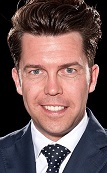
Abstract
A sound intellectual property (IP) strategy is the key of sustainable success of innovative companies: What kind of innovation does the company require in future markets, and what is the most appropriate approach to protect such innovation? Defining such strategy focuses research and development investments and avoids expenses on patent portfolios covering inventions without sufficient strategic leverage. This workshop explores best practices in protecting IP, covering the fundamental rules of patent protection and know-how protection:
Biography
Dr. THOMAS GNIADEK. Rechtsanwalt. Associated Partner. Practice Group Intellectual Property: Trademarks & Patents. Career: Legal studies at the University of Konstanz, the Cardiff Law School (UK), and the University of Heidelberg (first state exam). Having been a PhD candidate of Prof. Dr. Thomas Dreier M.C.J., Karlsruhe Institute of Technology (KIT), he received a PhD (“Dr. iur.”) with summa cum laude from the University of Freiburg. Admitted to the Munich Bar/Chamber of Lawyers. Experience as an Attorney-at-Law (“Rechtsanwalt”) and patent litigator with an international law firm and with a renowned IP boutique law firm. With Noerr since 2015. Focusing on patent law, national and international patent infringement proceedings, validity proceedings, licensing, technology transfer, R&D agreements, employee invention.... and more tutorials coming soon
IEEE 2015 ICCE Berlin Keynote Speakers
More keynotes and more info will be posted soon. Chech Keynote Speakers section.
In the meantime you can enjoy 2014 ICCE-Berlin keynotes speeches and interviews @ IEEE CESoc TV